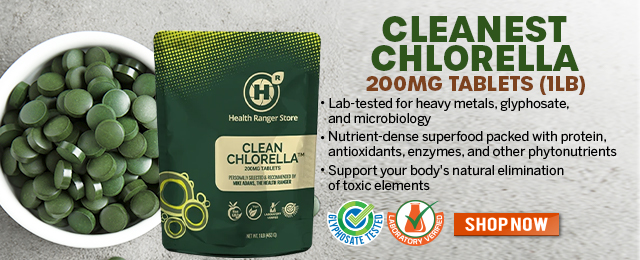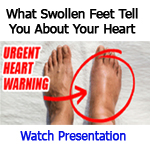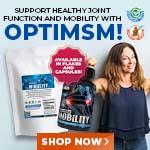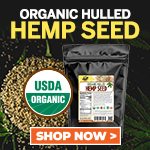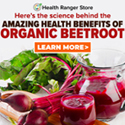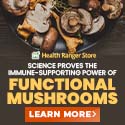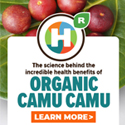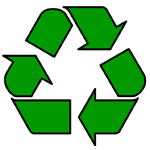
The recycling contradiction: Why recycling alone fails to protect the environment
 Friday, September 29, 2006 Friday, September 29, 2006by Mike Adams, the Health Ranger Editor of NaturalNews.com (See all articles...) Tags: recycling, environmentalism, toxic products |
- Hidden poison in your medicine and supplements: How phthalates in capsules are silently attacking your heart, thyroid, and hormones
- EU court exposes secret Pfizer deal, orders von der Leyen and Bourla to reveal concealed texts
- When the storm brings spies: How a top weather app became an agent of surveillance
- Hidden betrayal: Moderna and Pfizer shots hijack immune cells to rewrite mRNA, prolonging spike protein production
- Renegade cardiologist joins MAHA, demands immediate halt to mRNA vaccines and overhaul of US health policies
- OUTRAGE: Georgia shields pesticide giants from cancer lawsuits as corporate lobbying silences victims
- Lard: A highly nutritious but misunderstood superfood
- Judge rules Kansas vaccine lawsuit against Pfizer must proceed in state court
- Health Ranger Report: Dr. Alphonzo Monzo discusses nanotechnology, 5G and the weaponization of health
- CLIMATE PONZI SCHEME DENIED: Trump begins the exit of the BIGGEST WASTE of money, resources and human lives ever and the climate alarmists are freaking out
- The great awakening: How people are questioning power structures and embracing truth
- The mouth-brain connection: Could dental health guard against dementia (and vice versa)?
- Breakthrough study reveals how Epstein-Barr and a gene variant heighten multiple sclerosis risk
- Kraft Heinz pours $3 billion into U.S. factories as Trump tariffs reshape manufacturing
- Coinbase faces $400M fallout after insider-led phishing attack exposes customer data
- Thwarted ISIS plot on Michigan military base highlights ongoing domestic terror threat
- Pfizer’s election meddling exposed: Top scientists weaponized science to sway the 2020 vote, so they could benefit from unlawful mandates
- Rudolf Breuss introduces a natural approach to treating cancer and chronic illness in “The Breuss Cancer Cure”
- WAR ON COGNITION: The Coordinated Assault on Your Brain and How to Defend Yourself Against Every Attack
- Singapore's draconian vaccine mandate: Citizens face jail time for refusing FORCED medical procedures that do HARM
- Big Pharma's Dirty Secret: How Prescription Drugs Are Starving Your Body of Essential Nutrients
- Canada's COVID cover-up: Health officials swore secrecy to protect Trudeau from vaccine scandal
- RED ALERT: Nuclear War Between India and Pakistan Could Trigger Global Catastrophe… full RISK ANALYSIS
- JESUS NEVER SPOKE ENGLISH: Historical facts on why the Bible you’re probably reading has been altered, redacted or hidden from much of its original meaning
- Gene-edited pork sneaks onto your plate: FDA quietly approves CRISPR pigs amid health and ethical concerns
- Silent catastrophe: COVID-19 vaccines linked to plummeting fertility rates, Czech data reveals
- Why All Government Officials and Big Tech CEOs Who Engage in Systematic Viewpoint Censorship Must Be ARRESTED, Prosecuted, and Sentenced to Life in Prison
- Brushing with poison: Study finds toxic heavy metals in 90% of toothpaste brands, including those for children
- Survival basics: 5 Dangerous locations to avoid during an EMP attack
- BBC accused of “political censorship” for shelving Gaza documentary amid mounting pressure
- EU embraces censorship over solutions as energy grid crises spark blackout fears
- Health Ranger Report: Christopher Bjerknes challenges conventional narratives about world history
- Australia’s vaccine cover-up: 35 died same day as COVID shot, but authorities ignored them
- Landmark study of 85 million reveals shocking surge in heart attacks, strokes, and sudden death following the notorious COVID-19 jab
- Hidden poison in your medicine and supplements: How phthalates in capsules are silently attacking your heart, thyroid, and hormones
- The truth about Benzyl Alcohol in beauty products
- The Miraculous Healing Power of DMSO: Nature's Forgotten Cure for Cancer, Pain, and Regeneration
- Biblical truth: God will carry out a “cosmic reset” of Earth and destroy all human civilization with a series of extinction-level cosmic impacts known as The Seven Trumpets, Seven Bowls and Seven Seals
- URGENT REPORT: The China Import Embargo - What to Stockpile Now Before America Runs Out
- The Ultimate Survival Guide to Baking Soda: A Miraculous, Multi-Purpose Remedy for Health, Home, and Emergency Preparedness
- Widespread social and economic unrest: Steve Quayle issues urgent financial warning of imminent asset collapse in new interview with Mike Adams
- Aerosolized bioweapons? Strange “diploid biomasses” falling out of the sky in Florida captured under the microscope
- A call to preserve America’s future: “Defeating Big Government Socialism” by Newt Gingrich
- Stunning Visualization of the Seven Trumpets in the Book of Revelation
- Big Pharma launches “Vaccine Integrity Project” to combat Secretary Kennedy and keep 94 shots going into kids with mandates and liability protections
- World Economic Forum's current downfall exposes legacy of totalitarianism, financial fraud, and crimes against humanity
- Biden regime deployed over 600 grants to fund disinformation agenda, to silence the truth and stifle debate
- The Miraculous Healing Power of Green Tea: Unlocking the Potent Antioxidants That Big Pharma Doesn't Want You to Know About
- The unspoken truth about chemotherapy: These “treatments” create toxic time bombs in your body called CELL-KILLING PARTICLES
- U.S. Government's Bio-War Against America: 15 Historical Medical Horrors Inflicted on the American People by the Government Itself
- A win for free speech: State Department SHUTS DOWN controversial disinformation office
- U.S. demands U.K. protect FREE SPEECH, repeal hate speech authoritarianism, in latest trade deal negotiations
- French rioting demonstrates how gun control laws are failing law-abiding citizens
- Head of L.A. Port warns of incoming plunge in U.S. supply chain, empty shelves and inventory depletion in 5-7 weeks
- Red Cross issues warning to stop blood plasma donations from vaccinated people
- Scientists confirm: GENIUS brain function can be spontaneously unleashed in humans without any apparent cause
- EPA advisor admits the agency is funneling billions to climate groups ahead of Trump’s return to White House
- HYSSOP: What research reveals about the health benefits of this ancient holy herb
- Two containers with completed ballots fall out of truck in Florida
- Newly released JFK files reveal Pentagon's role in creating Lyme disease and covid in the same lab
- Mike Adams releases country western hit single: Goin’ Back in Time is Comin’ Home
- Global leaders unite to clamp down on “misinformation” with UN-backed Cascais Declaration
- BREAKING: 2025 NDAA authorizes mandatory military draft of WOMEN across America… as Pentagon pursues global NUCLEAR war with both Russia and China at the same time
- I Want My Bailout Money – new song released by Mike Adams
- Michael Yon warns of a ZIONIST TAKEOVER in Trump’s second administration
- Ozempic and Wegovy weight loss drugs are injectable LIZARD VENOM PEPTIDES that may unleash a devastating wave of organ failure… side effects align with symptoms of SNAKE BITES
- The Health Ranger releases “Vaccine Zombie” song and music video, using AI-animated zombies for the music video
- BOMBSHELL: DNA testing kits are a SCAM to develop ethnic-specific bioweapons
- These 13 countries just signed an agreement to engineer a global FAMINE by destroying food supply
- Israeli soldiers accused of even more torture and abuse in the West Bank
- RFK Jr. clears key hurdle: Sen. Susan Collins backs controversial HHS nominee, signaling a new era for health policy
- Sermon 30: How Jesus reveals Caesar’s FAKE CURRENCY and FALSE AUTHORITY
People are recycling old cardboard boxes from laundry detergent made with toxic ingredients and chemicals that wash down the drain and pollute the streams, groundwater and, ultimately, the ocean. They're recycling soft drink cans loaded with either high-fructose corn syrup -- the sweetener that promotes obesity and mental disorders in children -- or artificial chemical sweeteners that cause cancer and neurological malfunction.
I've seen people recycle prescription drug boxes and over-the-counter drug boxes. I've seen them recycle cans of household chemical cleaning products and personal care products made with all sorts of cancer-causing chemicals. I've actually looked into some of these bins and found antibacterial soap (toxic chemicals), lawn pesticide containers (more chemicals), and perfume bottles (extremely toxic to the ecosystems of waterways).
It all makes me wonder. What's the point of recycling all this packaging if the products being purchased and consumed are toxic to the environment in the first place?
Recycling programs are created to eliminate consumer guilt
Do you know what occurs to me in all of this? Recycling isn't about saving the planet. If it were about saving the planet, people wouldn't buy these products in the first place. Recycling is a system for eliminating consumer guilt. It is designed to give everyday consumers a token measure that they can feel good about.Recycling lets them believe they are saving the planet while they are flushing all these chemicals down the drain and spreading them on their lawns and gardens. They are putting toxic products in their cars, on their hair and into their mouths and bodies. Recycling is then presented as a solution to make these people feel good even as they are destroying the environment with every single product they consume.
Purchasing choices are far more important than recycling
You know what's really important in protecting the environment? Buying eco-friendly products in the first place.When you live a healthy lifestyle, a lifestyle that truly prioritizes respect for the planet, you don't end up with a lot of excess packaging to recycle in the first place. You don't end up with aluminum cans around the house or plastic bottles of diet soda. When you buy fresh, raw ingredients, the only thing you are left with are some plastic or paper bags, both of which are easily recycled.
The way to save the environment is to make better decisions at the point of purchase. Don't buy lawn products containing chemicals that damage the environment. Don't buy laundry detergent in any form unless it's fragrance-free and eco-friendly. Don't buy skin care products you wouldn't eat, because most things you put on your skin get absorbed into your body anyway. That's how you save the environment: Through purchasing decisions, not by recycling the discarded boxes of toxic products.
There is great hypocrisy in the recycling system. If it is about saving the planet, you shouldn't be buying those products in the first place. If it is about saving the planet, stop putting those pesticides on your lawn. If it is about saving the planet, stop poisoning your body with prescription drugs. There are detectable levels of prescription drugs (like antidepressants) in municipal water supplies today.
You might wonder if I am against recycling. No, not at all. I whole-heartedly support recycling. I think it is important to reuse materials. Instead of cutting down new trees, we should be using old paper and old cardboard. Instead of mining new metals out of the ground, we should be recycling old aluminum and tin. This is especially true with computers and electronics. We should be disposing of these products in environmentally conscious ways. I am not against recycling.
What I am against is the idea that people think they are saving the planet because they put a bin of plastic bottles out by the street every week. That's ridiculous. The products I saw in my neighbors' bins are so toxic to the planet and the environment that the recycling effort hardly seems to matter. It's sort of like saying, "Let's poison all the fish with these chemicals, and then recycle the box they came in so we can save the planet!"
Recycling consumer delusions
I have also visited friends or been in other people's houses where their pantries and refrigerators were full of the most toxic products you can imagine. Their house smelled of fragrance, laundry detergent, dryer sheets, perfumes, colognes and shampoos. I could just sense the toxicity of their environment, and yet they were avid recyclers.They dutifully sorted the containers of all their toxic products into different recycling bins without even a hint of awareness about their level of self-delusion. As I saw this, I thought to myself, "You people are insane; you're not saving the planet. You're only saving yourself from guilt." What they were really recycling, it turns out, is the same delusion shared by most consumers: that it's okay to dump anything you want into the environment as long as you recycle the box it came in.
But recycling is not some game where the more you recycle, the more you are saving the planet. In reality, the less packaging you buy in the first place, the more you're helping protect the environment. You shouldn't be buying products in overstuffed packages, wasteful food containers and plastic snack bags. You could be buying from local co-ops. Get your whole grains by the pound. You could buy raw fruits and vegetables that don't require fancy packaging. For soaps, you could be buying Dr. Bronner's soaps, which come in economy-sized bottles. Those are the types of products you buy when you genuinely care about the planet.
Urine trouble!
Of course, if you care about the planet, you also shouldn't be taking prescription drugs and urinating them back into the water supply. How is that for polluting the planet? Don't you realize that everything you put in your mouth ends up getting flushed down the toilet? Sure, they treat the wastewater, but municipal water treatment systems don't remove pharmaceuticals (and were never designed to).Why do you think the Gulf of Mexico is practically dead these days? The coral reefs are dying and the fish are poisoned with heavy metals and other chemicals because the Mississippi River empties into the Gulf of Mexico. It brings in all the chemicals the people of this country have flushed down their toilets and drains. Think about that the next time you have a clogged drain. Think about what you are pouring down that drain to unclog it. Those chemicals are going to end up in the environment somewhere.
So the next time you load up that curbside bin to be picked up by your local recycling company, ask yourself, "What are the environmental impacts of these products?" If you think you are saving the planet just by recycling the containers, you're kidding yourself. You are not saving anything. You are just making yourself feel better while you continue to poison the planet. If you really want to save the planet, stop buying and consuming toxic chemicals. Put the chemical companies out of business by refusing to buy their products.
I know this is not a popular view of recycling. But I am not here to be popular, I'm here to get you to think about what's really going on, and to recognize your role in it. I was once a consumer of numerous toxic products, but I recognized the error, adjusted my consumption patterns, and now I practice genuine environmental responsibility (and I still recycle, too). I urge you to do the same. Ask yourself what you're still buying that's harmful to the environment, then switch to safer, more eco-friendly products from companies like Seventh Generation, which offers laundry and home care products that are far safer for the environment than more conventional products.
Saving the planet isn't really about recycling. It's more about what you consume and flush back into the environment. If you stop poisoning the environment with common products for the home, kitchen, laundry, lawn and garage, you'll do far more good than recycling a few plastic bottles.
And then you'll actually have a real reason to feel good about your role as an environmentally-responsible consumer.
###
Recycling at FETCH.news
Get independent news alerts on natural cures, food lab tests, cannabis medicine, science, robotics, drones, privacy and more.
 About the author:Mike Adams (aka the "Health Ranger") is a best selling author (#1 best selling science book on Amazon.com) and a globally recognized scientific researcher in clean foods. He serves as the founding editor of NaturalNews.com and the lab science director of an internationally accredited (ISO 17025) analytical laboratory known as CWC Labs. There, he was awarded a Certificate of Excellence for achieving extremely high accuracy in the analysis of toxic elements in unknown water samples using ICP-MS instrumentation. Adams is also highly proficient in running liquid chromatography, ion chromatography and mass spectrometry time-of-flight analytical instrumentation.
About the author:Mike Adams (aka the "Health Ranger") is a best selling author (#1 best selling science book on Amazon.com) and a globally recognized scientific researcher in clean foods. He serves as the founding editor of NaturalNews.com and the lab science director of an internationally accredited (ISO 17025) analytical laboratory known as CWC Labs. There, he was awarded a Certificate of Excellence for achieving extremely high accuracy in the analysis of toxic elements in unknown water samples using ICP-MS instrumentation. Adams is also highly proficient in running liquid chromatography, ion chromatography and mass spectrometry time-of-flight analytical instrumentation.
Adams is a person of color whose ancestors include Africans and Native American Indians. He's also of Native American heritage, which he credits as inspiring his "Health Ranger" passion for protecting life and nature against the destruction caused by chemicals, heavy metals and other forms of pollution.
Adams is the founder and publisher of the open source science journal Natural Science Journal, the author of numerous peer-reviewed science papers published by the journal, and the author of the world's first book that published ICP-MS heavy metals analysis results for foods, dietary supplements, pet food, spices and fast food. The book is entitled Food Forensics and is published by BenBella Books.
In his laboratory research, Adams has made numerous food safety breakthroughs such as revealing rice protein products imported from Asia to be contaminated with toxic heavy metals like lead, cadmium and tungsten. Adams was the first food science researcher to document high levels of tungsten in superfoods. He also discovered over 11 ppm lead in imported mangosteen powder, and led an industry-wide voluntary agreement to limit heavy metals in rice protein products.
In addition to his lab work, Adams is also the (non-paid) executive director of the non-profit Consumer Wellness Center (CWC), an organization that redirects 100% of its donations receipts to grant programs that teach children and women how to grow their own food or vastly improve their nutrition. Through the non-profit CWC, Adams also launched Nutrition Rescue, a program that donates essential vitamins to people in need. Click here to see some of the CWC success stories.
With a background in science and software technology, Adams is the original founder of the email newsletter technology company known as Arial Software. Using his technical experience combined with his love for natural health, Adams developed and deployed the content management system currently driving NaturalNews.com. He also engineered the high-level statistical algorithms that power SCIENCE.naturalnews.com, a massive research resource featuring over 10 million scientific studies.
Adams is well known for his incredibly popular consumer activism video blowing the lid on fake blueberries used throughout the food supply. He has also exposed "strange fibers" found in Chicken McNuggets, fake academic credentials of so-called health "gurus," dangerous "detox" products imported as battery acid and sold for oral consumption, fake acai berry scams, the California raw milk raids, the vaccine research fraud revealed by industry whistleblowers and many other topics.
Adams has also helped defend the rights of home gardeners and protect the medical freedom rights of parents. Adams is widely recognized to have made a remarkable global impact on issues like GMOs, vaccines, nutrition therapies, human consciousness.
In addition to his activism, Adams is an accomplished musician who has released over a dozen popular songs covering a variety of activism topics.
Click here to read a more detailed bio on Mike Adams, the Health Ranger, at HealthRanger.com.
Take Action: Support Natural News by linking to this article from your website
Permalink to this article:
Embed article link: (copy HTML code below):
Reprinting this article:
Non-commercial use OK, cite NaturalNews.com with clickable link.
Follow Natural News on Facebook, Twitter, Google Plus, and Pinterest
Science News & Studies
Medicine News and Information
Food News & Studies
Health News & Studies
Herbs News & Information
Pollution News & Studies
Cancer News & Studies
Climate News & Studies
Survival News & Information
Gear News & Information
News covering technology, stocks, hackers, and more



"Big Tech and mainstream media are constantly trying to silence the independent voices that dare to bring you the truth about toxic food ingredients, dangerous medications and the failed, fraudulent science of the profit-driven medical establishment.
Email is one of the best ways to make sure you stay informed, without the censorship of the tech giants (Google, Apple, Facebook, Twitter, YouTube, etc.). Stay informed and you'll even likely learn information that may help save your own life."
–The Health Ranger, Mike Adams












